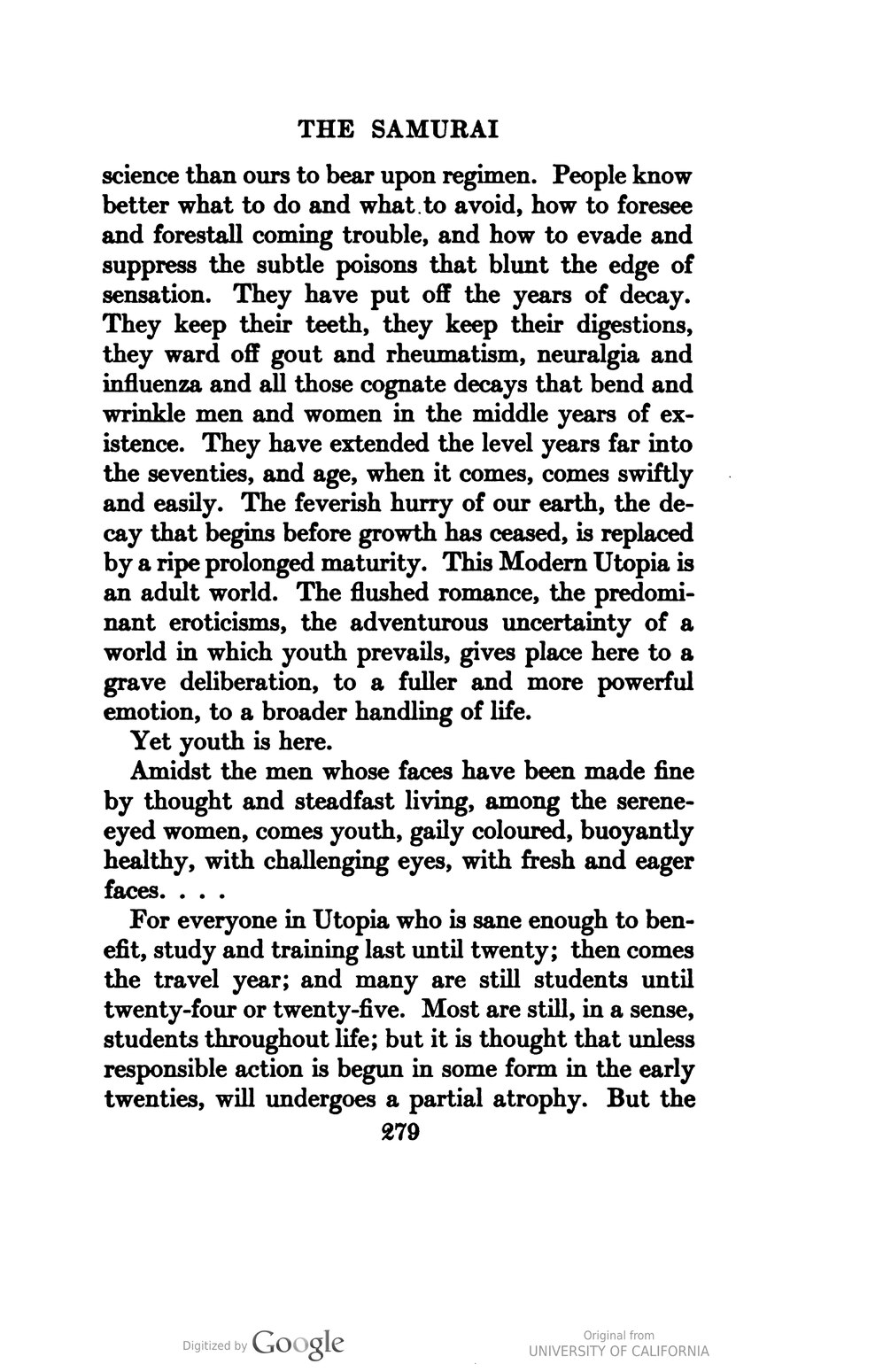THE SAMURAI
science than ours to bear upon regimen. People know better what to do and what to avoid, how to foresee and forestall coming trouble, and how to evade and suppress the subtle poisons that blunt the edge of sensation. They have put off the years of decay. They keep their teeth, they keep their digestions, they ward off gout and rheumatism, neuralgia and influenza and all those cognate decays that bend and wrinkle men and women in the middle years of existence. They have extended the level years far into the seventies, and age, when it comes, comes swiftly and easily. The feverish hurry of our earth, the decay that begins before growth has ceased, is replaced by a ripe prolonged maturity. This Modern Utopia is an adult world. The flushed romance, the predominant eroticisms, the adventurous uncertainty of a world in which youth prevails, gives place here to a grave deliberation, to a fuller and more powerful emotion, to a broader handling of life.
Yet youth is here.
Amidst the men whose faces have been made fine by thought and steadfast living, among the serene-eyed women, comes youth, gaily coloured, buoyantly healthy, with challenging eyes, with fresh and eager faces. . . .
For everyone in Utopia who is sane enough to benefit, study and training last until twenty; then comes the travel year; and many are still students until twenty-four or twenty-five. Most are still, in a sense, students throughout life; but it is thought that unless responsible action is begun in some form in the early twenties, will undergoes a partial atrophy. But the
279
